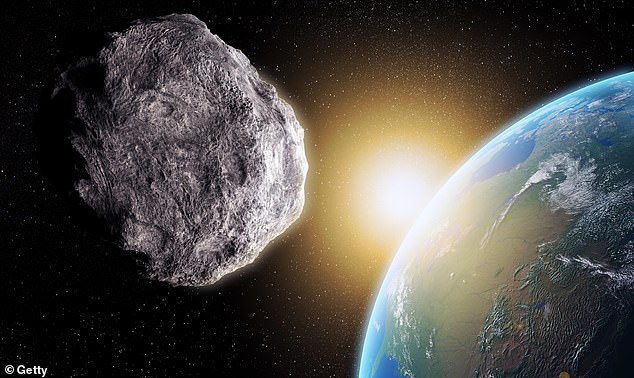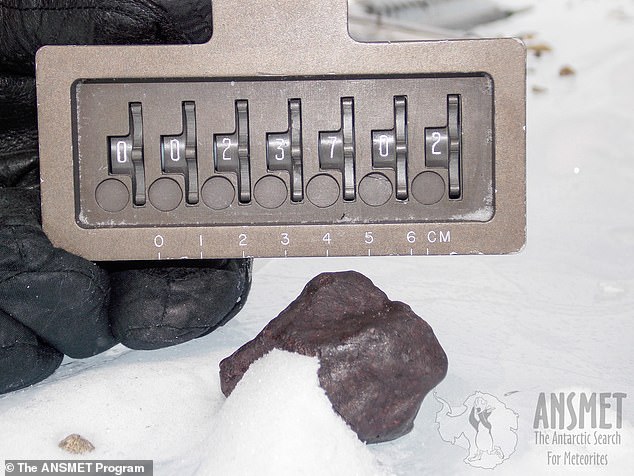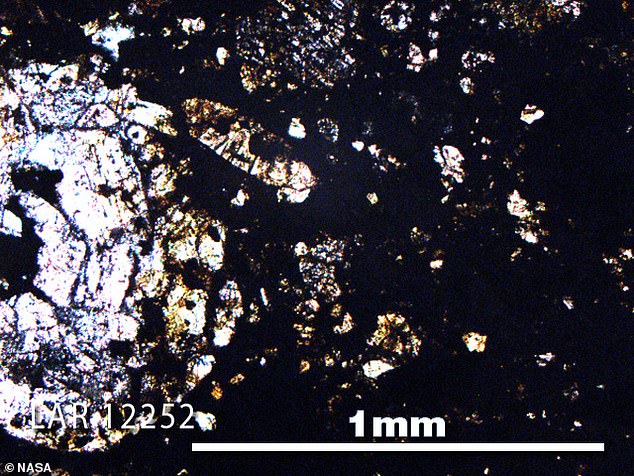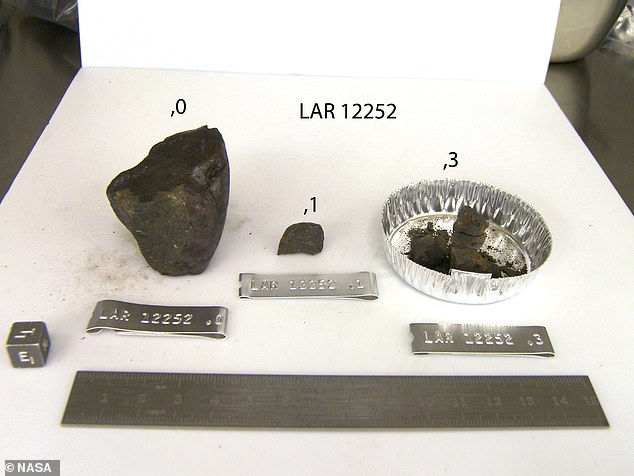- EXPLORE FURTHER: Researchers puzzled after finding an unusual asteroid-comet hybrid
Earth stands out among the celestial bodies in the cosmos due to its plentiful supply of liquid water, which makes it one of the rare locations capable of fostering the development and growth of life.
However, scientists have often pondered the origins of all our essential water resources.
Finally, scientists from the University of Oxford possess the response – and assert that, bucking conventional wisdom, Earth's aquatic resources Did not originate from asteroids after all.
Rather, the scientists think that the components of the water in our oceans and rivers were originally intrinsic parts of the Earth itself right from the start.
In their research, the group examined a scarce asteroid composed of materials highly akin to the rocky fragments that assembled to form Earth.
With a strong X-ray beam, the researchers discovered that these substances contained an 'extraordinary amount' of hydrogen, which produces water when mixed with oxygen.
Tom Barrett, a PhD candidate from the University of Oxford and co-author of the study, explained to MailOnline: "The main takeaway from this research is that hydrogen, along with the components necessary for water, was integrated into Earth through its fundamental construction materials, which makes it an unavoidable result of our planet's creation."
This could indicate that water on the surface of planets might be more likely than we initially believed.

To understand how life emerged on Earth and potentially exists elsewhere in the universe, scientists must first determine how liquid water originated here.
We understand that the water on our planet came into being through the combination of hydrogen and oxygen, thus The discussion frequently revolves around the origins of these components arriving on our planet.
A lot of people thought that the rocks forming the Earth 4.55 billion years ago contained insufficient hydrogen to account for the vast amounts of water present on our planet now.
Hence, it was proposed that Water could originate from space rocks containing hydrogen or coated with ice originating from distant regions of the cosmos. Which struck the Earth 100 million years ago.
As we cannot directly observe the appearance of the early Earth, the most effective method to examine this hypothesis is by examining meteorites that have been floating through space since our planet came into being.
In their latest research paper published in the journal Icarus, scientists examined a meteorite known as LAR 12252, discovered in Antarctica.
LAR 12252 is a scarce variety of meteorite known as an 'enstatite chondrite,' with a makeup akin to that of early Earth.
A group of researchers from France had earlier demonstrated that this rock held hydrogen trapped within small round formations known as chondrules.

However, the methodology employed in their research made it uncertain whether the detected hydrogen was an initial inherent component of the rock or if it resulted from terrestrial contamination.
To gain further insights, Dr. Barrett and his collaborators employed a method known as X-ray Absorption Near Edge Structure spectroscopy.
This process involves illuminating the material with an extremely intense X-ray beam and examining how each atom absorbs energy to determine its elemental composition and the type of chemical bond it is involved in.
When the researchers exposed the margins of the chondrules to X-rays, where water was previously detected, they discovered that these regions were abundantly enriched with a substance known as hydrogen sulfide.
Since this rock is so similar to the composition of the Earth when it formed, this suggests that the planet may have already had enough hydrogen for liquid water to form.
Dr Bryson says: 'Our work suggests that water did not need to be delivered from asteroids.
The substance that formed Earth probably included sufficient hydrogen, present as hydrogen sulfide, to account for all of Earth’s water supply.
Moreover, the positioning of the hydrogen-rich compounds within the meteorite strongly indicates that their conclusions are correct.


Although the region surrounding the round chondrules contained an abundance of hydrogen sulfide, sections of the meteorite exhibiting indications of contamination like fissures or rust showed no presence of this compound.
This indicates to the scientists that the hydrogen within the meteorite was incorporated into its composition prior to reaching Earth.
Dr. James Bryson, an associate professor of mineralogy at the University of Oxford and co-author of the study, told MailOnline: "We are quite certain that the meteorites we have analyzed accurately represent the materials from which Earth was formed."
This occurs due to the meteorite having the same proportion of stable isotopes, which are varieties of elements, as those discovered within Earth's inner regions.
This does not imply that all of Earth's water originated from asteroid impacts; however, we do have solid proof indicating that at least some of the water present on our planet’s surface was indeed brought here through such collisions.
This indicates that a portion of the surface water and the bulk of the internal water, which constitutes the predominant fraction of the planet’s total water content, has been present since the start.
Dr. Bryson states, "Our results demonstrate that there was sufficient hydrogen present in the Earth since its formation to produce ample amounts of water. However, we remain uncertain about the timing and mechanisms involved in this process. We aspire for our study to encourage further investigation into these aspects."
Read more



0 Comments